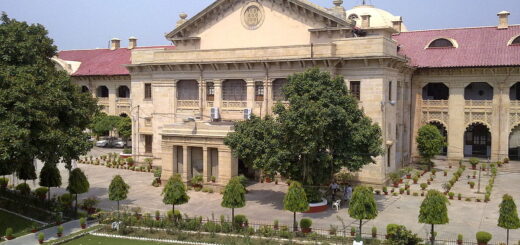Newspaper reports are considered hearsay and cannot be accepted as proven facts unless confirmed by the author, according to the Jammu & Kashmir and Ladakh High Court.

The High Court of Jammu and Kashmir and Ladakh has stated that newspaper statements are considered hearsay and cannot be accepted as facts unless supported by the author. Justice Sanjay Dhar made this remark while addressing a case about the electrocution death of Satya Devi, allegedly due to negligence by the Power Development Department (PDD). The petitioners, Balwant Singh and Munish Singh, requested Rs. 25 lakhs in compensation for their 45-year-old mother, who died on June 28, 2007, after touching a live electric wire in Solki village. Villagers had reportedly informed the PDD about the broken wire 19-20 days prior to the incident, but no action was taken.
Advocate Ashok Sharma represented the petitioners, while Advocates Pallavi Sharma and Ravinder Gupta represented the respondents. The court dismissed the respondents’ reference to a Daily Excelsior article that blamed lightning for the death, stating, “A statement of fact in a newspaper is merely hearsay and cannot be considered a proven fact without the maker’s statement.” The court highlighted the post-mortem report confirming electrocution as the cause of death and supported police findings that the live wire was attached to an electric pole but was lying on the ground. The court also referenced Rule 77 of the Electricity Rules, 1978, which requires electric wires to have a minimum ground clearance of 13 feet, noting that the PDD’s failure to meet this standard was a sign of negligence.
The Court referenced the strict liability principle from Rylands v. Fletcher and the ruling in Madhya Pradesh Electricity Board v. Shail Kumari. It stated, “The failure of the officials in the respondent department to perform their duties constitutes negligence, making the department responsible for compensating any damage to life and property resulting from this negligence.” The Court instructed the respondents to pay Rs. 10 lakhs to the petitioners in equal parts within two months, adding 6% annual interest for any delays. “Therefore, the writ petition is granted, and the respondents must pay the petitioners Rs. 10.00 lakhs as compensation, divided equally. This payment is due within two months from when the petitioners receive a copy of this order. If not paid on time, it will accrue interest at 6% per year from the date the writ petition was filed until the amount is fully paid,” the Court ordered.
Cause Title: Balwant Singh & Anr. v. State of Jammu and Kashmir [OWP No.498/2010]









